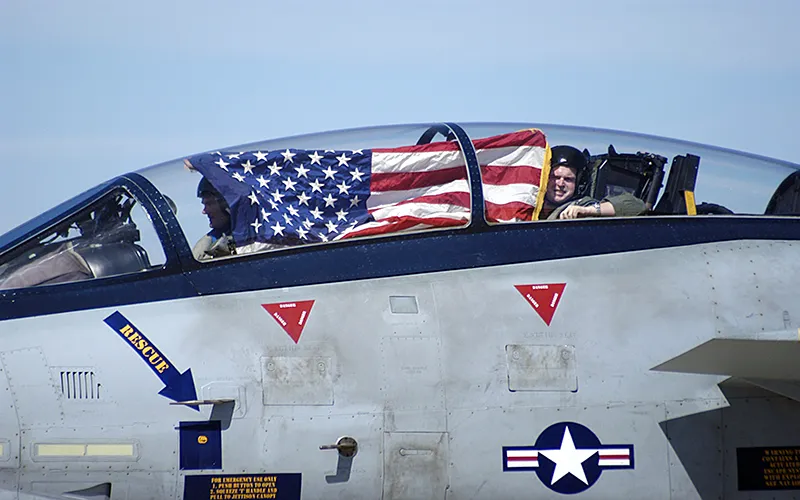-
CENTRES
Progammes & Centres
Location
Despite the sanctions, Iran has continued to act as a regional power with huge influence over the internal affairs of Iraq, Syria, Lebanon, Bahrain and Yemen. That's what threatens Saudi Arabia and the other Gulf kingdoms, and America's rapproachment with Iran is the beginning of a tectonic shift in the regional balance of power.

Those of us who learn about world events only from the western press, in general and of the recent nuclear deal between Iran and the P5+1 (US, UK, France, Russia, China and Germany) in particular, are likely to be quite amazed at the narrative of the Iranian leaders and their media on the matter. While the EU Foreign Minister Mogherini, the coordinator of the talks, gushed at its conclusion that it was a 'historic deal', the Iranian Foreign Minister Jawad Zarif qualified the adjective by adding that it was an 'imperfect' but nevertheless a historic deal. It was imperfect because it did not lift all the bilateral sanctions of the US and EU countries on Iran, the day the deal was signed. Only the UN imposed sanctions have been lifted as of now.
President Rouhani, speaking soon after President Obama who had emphasized that the 'deal was NOT based on Trust but Verification', called it an 'unnecessary crisis'. While President Obama insisted that this deal had postponed Iran's break-out period (its ability to produce a nuclear weapon) from 1 year to 10 years or may be 15 years, President Rouhani reiterated that Iran had no intention whatsoever to produce a nuclear weapon, as the Supreme Leader Ayotallah Ali Khameni had long ago issued a fatwa against it and had declared it un-Islamic. Hence, it was an 'unnecessary crisis'. Was it truly so?
Well, not if you read the Western Press and even the IAEA reports. Remember, the IAEA inspectors kept insisting that Iraq under Saddam Hussain had weapons of mass destruction, until its Director General Hans Blix quit in disgust and Gen. Colin Powell apologized for misleading the UN General Assembly. But by then President George Bush Jr had already bombed Iraq into the Middle age and Saddam Hussain was driven under a manhole. This time too, the IAEA kept finding a 'smoking gun' in Iran, some yellow cake here and a blue-print for a centrifuge there and finally the undeniable proof - the existence of a nuclear reactor in Fordow in a cave under a mountain. All this intelligence was provided to the IAEA by the CIA and the Mossad. Despite all the provocation, it must be said to the credit of President Obama that he refused to bomb Iran, even under pressure from Senator John McCain who kept singing 'bomb, bomb, bomb Iran' during the Presidential campaign in 2008.
But then, Iranians have been accused of cheating the West. Of course, the western press does not consider what President George Bush did and advised Gen. Colin Powell to do in the UN as cheating. That is merely Republican style of functioning; you cannot quarrel with that.
What has this deal accomplished for Iran, that it was not already entitled to under the Nuclear Non-Proliferation Treaty (NPT), to which it is a signatory. The NPT recognizes the inalienable right of every sovereign member-state to use nuclear energy for peaceful purposes and permits enrichment of uranium (without specifying the per centage of enrichment) for light water nuclear reactors to generate electricity. Now this deal recognizes the same very inalienable right of Iran. It is a matter of detail as to how many centrifuges it is allowed to run or how much stockpile of enriched Uranium it is allowed to keep. What is important is that once you have the technology and the capability to enrich uranium, it is just a matter of time before you produce enough of it for making a bomb. So what this deal does is to reinforce a stringent inspection regime by the IAEA inspectors to inspect 'when necessary, where necessary'.
Iran has not accepted the Additional Protocol but the terms of this deal broadly adhere to the same. It had already agreed to oxidize the earlier stock of 20% enriched Uranium, change the design of the core of its Plutonium reactor and convert Fordow reactor into an R&D centre with only about 1000 centrifuges in operation. In return for this, the US, UK, France and Germany will lift all their bilateral and multilateral (EU) sanctions on Iran. The West will now graciously bring Iran into the 'mainstream' from the isolation into which it had been pushed! Even for that little gesture there is such a howl of protest from Israel, Saudi Arabia and all the Republican Senators in the US.
Do the Iranians perceive it that way? Firstly about the deal itself, President Rouhani was very pragmatic, when he said that Iran had only four objectives and they have all been met.
The first objective was to continue its nuclear activity, the second was to remove "wrong and cruel" sanctions, the third was to annul all the "illegal" sanctions resolutions in the UN Security, and the fourth was to remove Iran's nuclear dossier from the agenda of UN Security Council. Elsewhere in his remarks, Rouhani stated that 12 years of illusions and disinformation about Iran's nuclear activities came to an end and now a new chapter has been opened in Iran's relations with the world?
He noted that the implementation of the agreement is reciprocal and Iran will be committed to the agreement if the other side lives up to its commitments. The President went on to say that the main achievement of the talks is the establishment of a new atmosphere to expand international relations.
Is this the language of an isolated country with a crippled economy, or is it mere bravado in the face of repeated threats of a 'snap-back of sanctions within 65 days'? Does not appear to be so. For the US President is as weak and vulnerable as the Iranian President. He knows very well that if there is no agreement now, neither Russia nor China will support any extension of the sanctions regime. Even the EU-3 were desperate to get back into business with Iran. Look at the hurry in which the German Foreign Minister visited Tehran. The French Foreign Minister, who was most aggressively defending the interests of Israel and the Saudi kingdom during the talks, is arriving next week. The depressed economies of Europe are desperate for cheaper energy sources and the prospect of Iranian oil hitting the world market has already pushed the oil price down.
Finally, does anyone in Iran think that they have been pushed into a hole? Well, the sanctions have certainly circumscribed Iran's trade and commerce with the rest of the world, but within its region, Iran has continued to act as a regional power with huge influence over the internal affairs of Iraq, Syria, Lebanon, Bahrain and Yemen. That's what threatens Saudi Arabia and the other Gulf Kingdoms and America's rapproachment with Iran is the beginning of a tectonic shift in the regional balance of power.
(The writer is a Visiting Fellow at Observer Research Foundation, Delhi)
Courtesy: Economic Times
The views expressed above belong to the author(s). ORF research and analyses now available on Telegram! Click here to access our curated content — blogs, longforms and interviews.

Anjali Birla is an Indian Civil Services Officer(Batch 2020) working in the Ministry of Railways and has done her graduation in Political Science from Delhi ...
Read More +